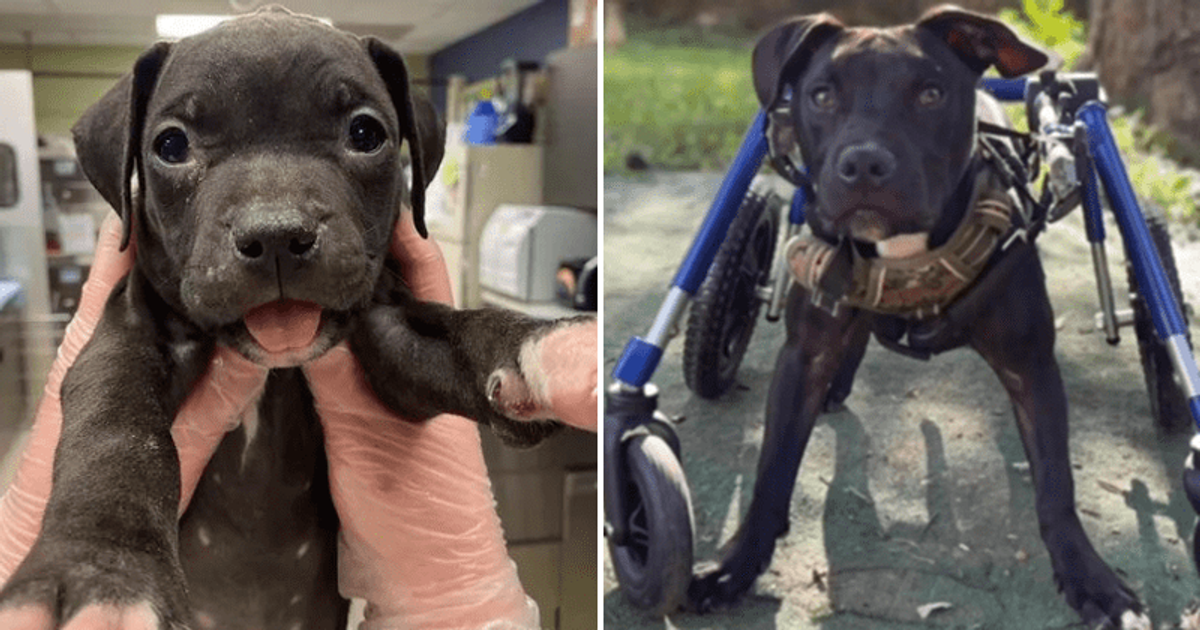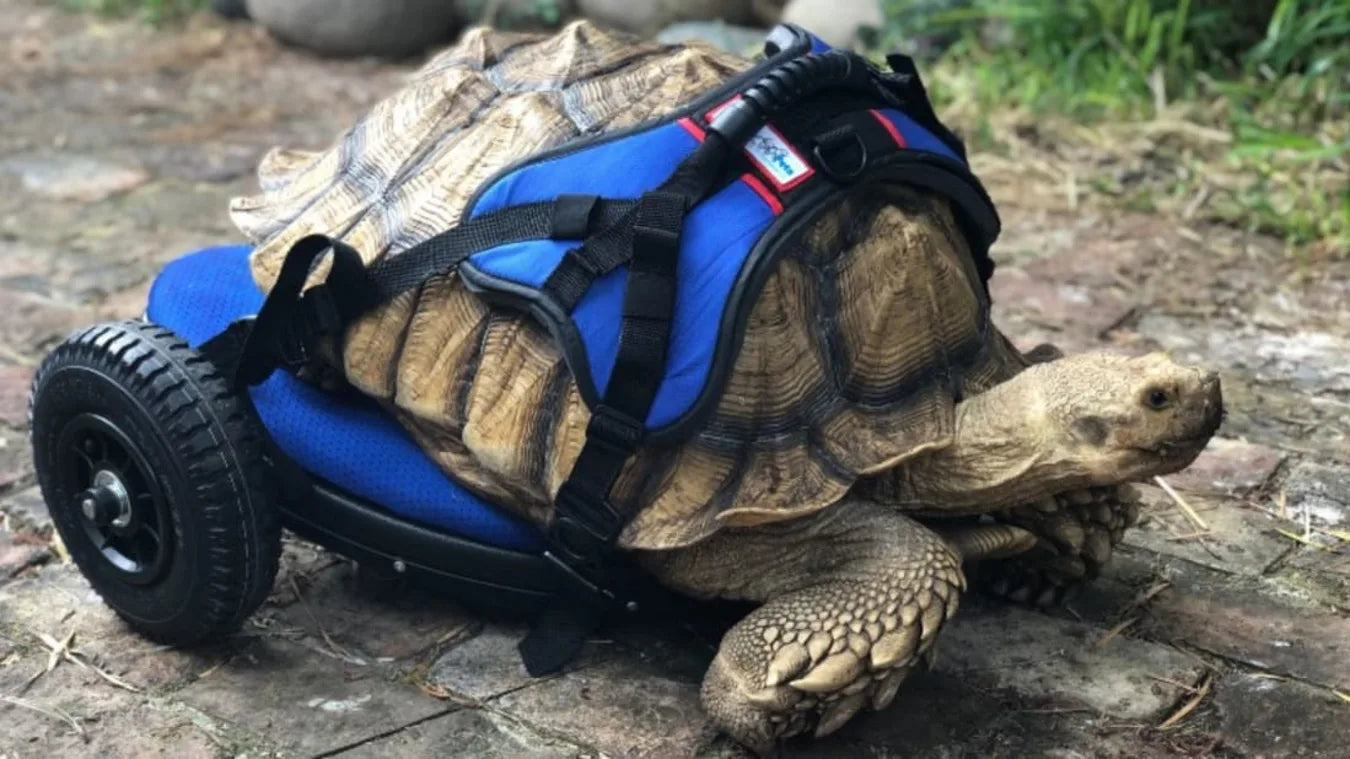Sit Down Dog Wheelchairs

Loss of Vision in Dogs and the Impact on Small Breed Dogs
Dogs, like people, have health issues, with age their eyesight often deteriorates, and they also need a guide. Caring for an attention-grabbing (or already blind) dog requires special attention and care, as well as treatment. However, vision loss certainly does not always mean a poor quality of life, especially for those owners who properly care for a pet with limited tastes.
Common Causes of Vision Loss
Dogs can lose their sight for a variety of reasons, from medical conditions to old age. The most common causes of vision loss in dogs are cataracts, glaucoma, progressive retinal atrophy, and sudden acquired retinal degeneration.
Increased Risk of Blindness in Female Dogs
Dogs of some breeds, as well as females, are more prone to blindness than others. For example, middle-aged females are particularly prone to acquired retinal degeneration, which can cause blindness out of the blue.
Miniature schnauzers, dachshunds, and mixed breeds are also at increased risk of developing this disease. However, cataracts are more common in toy poodles, cocker spaniels, miniature schnauzers, golden retrievers, Boston terriers, and Siberian huskies. Accordingly, we can understand that small breed dogs are much more susceptible to such diseases than large breed dogs, such as the Akita dog or the Tibetan mastiff.
Vision Loss in Flat-Faced Dogs
The shape of a dog's face can be a risk factor when it comes to blindness. Brachycephalic dog breeds or flat-faced breeds such as the Pug or French Bulldog tend to have eyes that protrude. Their bulging eyes make it hard for them to close their eyes and can lead to vision problems. Their eyes are also more likely to experience trauma. such as cuts, scrapes, or even retinal detachment.
Beta Carotene
Good nutrition is essential to a dog's health and, in some cases, can help keep its eyes healthy, although there is, unfortunately, no known cure or prevention for sudden retinal degeneration and similar visual impairments.
However, beta-carotene can help preserve a dog's vision. Some foods, such as carrots and melons, are known to improve the eyesight of pets and reduce the chance of developing cataracts. When choosing a dog food, look for one that lists beta-carotene.
The veterinary care needed will depend on what exactly caused your dog's blindness, as the characteristics of small dog breeds are beyond the control of even the best veterinarians.
Avoiding such problems is not always possible, but it is possible to mitigate the consequences for this type of dog. In addition to beta-carotene, the veterinarian may suggest seeing a veterinary ophthalmologist, whose services are usually more expensive than regular supervision. When looking for this specialist, it is best to start with a professional association of veterinary ophthalmologists.
Lifestyle of a blind dog, how to help and take care of it
Many volunteer organizations seek to help blind and visually impaired dogs by taking them from various shelters. If you have a visually impaired dog, you can turn to these volunteer organizations for advice. Where to begin:
Use Sound
Hang medallions or bells that ring or make sounds on other animals in the house, and wear one yourself so that your visually impaired dog knows where his companions and owners are. They should feel safe when they know they are not alone.
Teach Your Blind Dog Verbal Commands
Teach your dog the “Warning!” command so that he knows that he is approaching an obstacle. We also recommend teaching the “Step!” command so that she knows when there is a ladder in front of her. Training never hurts. The dog can remember such commands, even if you just communicate with it as you move around the house. The words she hears, she will associate with what she feels, so she can get used to such movement.
Take a Dog's Eye View
Get down to your dog's level to look around the house for things that could harm him. For example, the sharp corners of the table can be a real danger if the pet moves too fast. It is also advisable to remove fragile things, not only to save things but also for the safety of the dog. For example, if you have a glass vase on the floor, if you are not around, the dog may accidentally break it and injure himself.
Guide Your Dog Around the House
You should introduce the dog to all the objects of the house so that he can explore the territory with your help and roughly imagine the picture of the house in his head.
Work her through a few standard routes, such as from bed to bowl and drinker, to the back door, and her favorite place to sleep. Keep these routes clear of any obstacles to make it easier for her to move around the house. When you take your dog outside, you will need to keep him on a leash to guide him to the places where he is used to doing his business. After a while, the rest of her senses will intensify and help her cope on her own.
Have Fun and Keep Them Active

Help her stay active. Just because a dog is visually impaired doesn't mean it can't have fun and play. Just as a guide dog helps a visually impaired person, you can help your pet by guiding her with a leash. Keep the leash short so that it is easier for you to direct her movement. It will also be useful to allow her to sniff everything around so that she can perceive the environment through smells.
It's a small gesture, but she will appreciate it! Also, you can play with it. Find an open, safe place for her to run around, like in the backyard, and play Fetch the Ball with her! with toys that make sounds. Thanks to her sense of smell and hearing, sooner or later she will be able to find the ball, and when you call her to bring it back to you, she will return to you in the same way. For such games, there are toys with an internal feed compartment. Thus, you will help your dog by using not only his hearing but also his sense of smell in the game.
Of course, caring for your visually challenged dog will require special efforts. But love and time will help both of you adjust to this natural state. Just because your pet can no longer see the way it used to, doesn't mean their quality of life has to suffer. Continue to show him all the same love and affection - and he will repay you in the same way.










